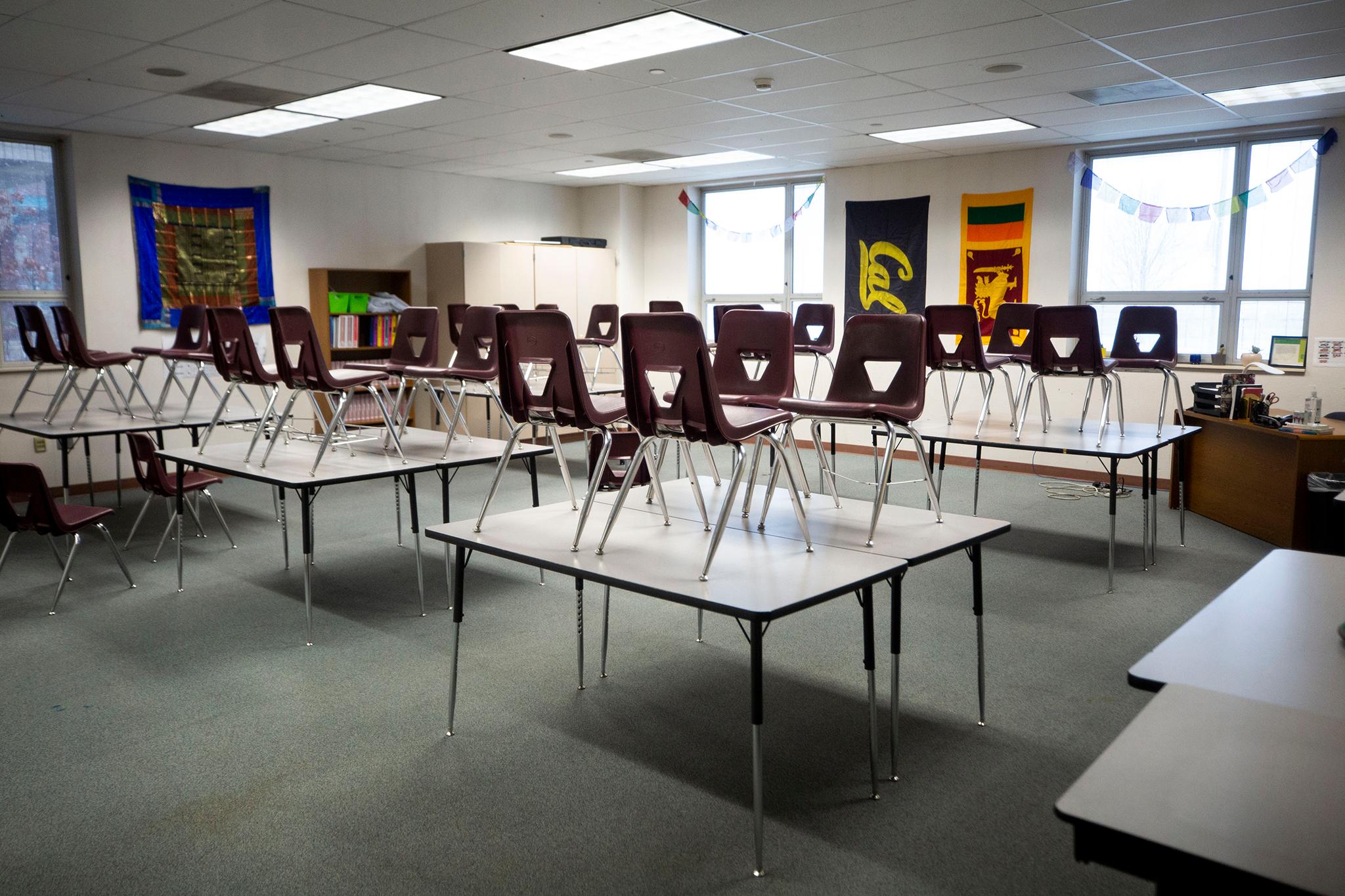Update, March 19: The DPS School Board voted to start school Aug. 23.
Every warm day, Katie Allen and her fourth grade students at Polaris Elementary in Five Points dread the approach of midday. That's when the sun starts to stream in through her unairconditioned classroom's west-facing windows and the temperature on the thermometer Allen started bringing from home regularly reaches 94 degrees.
"From noon on we are suffering pretty bad. There's a lot of sweat in the afternoon," Allen said. "My students really struggle with stamina, so we just do our best in August and September."
It's not just Allen's student's that struggle in the summer. Polaris is just one of 55 schools in the Denver Public school system without air conditioning. Denver Public Schools found that classrooms reached 78 to 102 degrees in August last year.
The boiling heat in schools has been a point of contention among parents and teachers for several years now. Those concerns are now compounded by the continuing pandemic, which has limited the use of some heat mitigation tools and spurred mask requirements in school buildings.
While DPS has not highlighted any specific concerns over masks and heat, several studies have shown that masks can exacerbate heat stress, and the Center for Disease Control and Prevention warns that Personal Protective Equipment can cause additional heat stress for workers.
Schools have also had to restrict the use of fans and other tools that circulate air because they could potentially help spread the coronavirus between students.
The converging problems have spurred a debate over when DPS should begin school in the fall, with some members of the school board signaling their support for a later start date than normal.
The DPS Calendar Advisory Committee outlined its recommendations in a board meeting on March 4. The committee presented three possibilities for start dates: Aug. 16, 23 or 30. The Aug. 30 start date is two weeks later than normal and would avoid the hottest days of the year, but it would also push the school year into June and shorten Thanksgiving and Christmas breaks.
The board voted Thursday to push the start date to Aug. 23, which is considered a compromise that avoids one week of hot temperatures, but maintains normal school breaks. The calendar committee also opened the possibility that schools without air conditioning could be remote for the first few weeks to avoid the heat.
The committee did not consider pushing the school year back even further because it would throw DPS too far out of sync with surrounding districts, which could jeopardize summer opportunities like summer school and internships for students and would also create child care issues for DPS teachers with children in other districts.
DPS put out a survey of 3,565 students, parents and teachers, about half of whom affiliated with schools without air conditioning, regarding the start dates. The Aug. 23 date was the most popular, while few favored the Aug. 30 date.
During the March 4 meeting, some board members expressed support for an Aug. 30 start despite its unpopularity in the survey. Board Member Scott Baldermann was a vocal opponent of hot classrooms as a DPS parent years before he was elected to the board.
"These hot classrooms are very problematic," he said during the meeting. "It is a terrible learning environment... staff is checking out, kids are checking out."
While the later date does have some support, many see heat mitigation as the only real permanent solution to the hot classroom problem.
DPS improved ventilation in its schools this year with $5 million in CARES Act funds. These improvements were designed to improve filtration and limit the spread of COVID-19, but they may also help reduce heat in buildings. In November, voters approved a $795 million bond that will allow DPS to install air conditioning in 24 additional schools. Two of those schools will have air conditioning before the start of the fall semester, while the bulk of the installation in other schools will occur in 2022.
Even with her hot classroom, Allen supports an Aug. 23 date because it does not limit school breaks.
She's hopeful that her school will get air conditioning sometime in the next few years. For the upcoming semester, Allen plans to rely on her portable ice maker to keep her water cool. Because the guidance continues to change, she and her fellow teachers don't yet know how much the pandemic will limit their use of fans or if masks will be required in the extreme heat.
"We will just have to cross that bridge when we come to it," she said.












